BGS unveils #TheCommoditree at Glastonbury 2023
The new installation is part of a unique touring festival stand showcasing how modern lifestyles wouldn't be possible without rocks and minerals.
21/06/2023 By BGS Press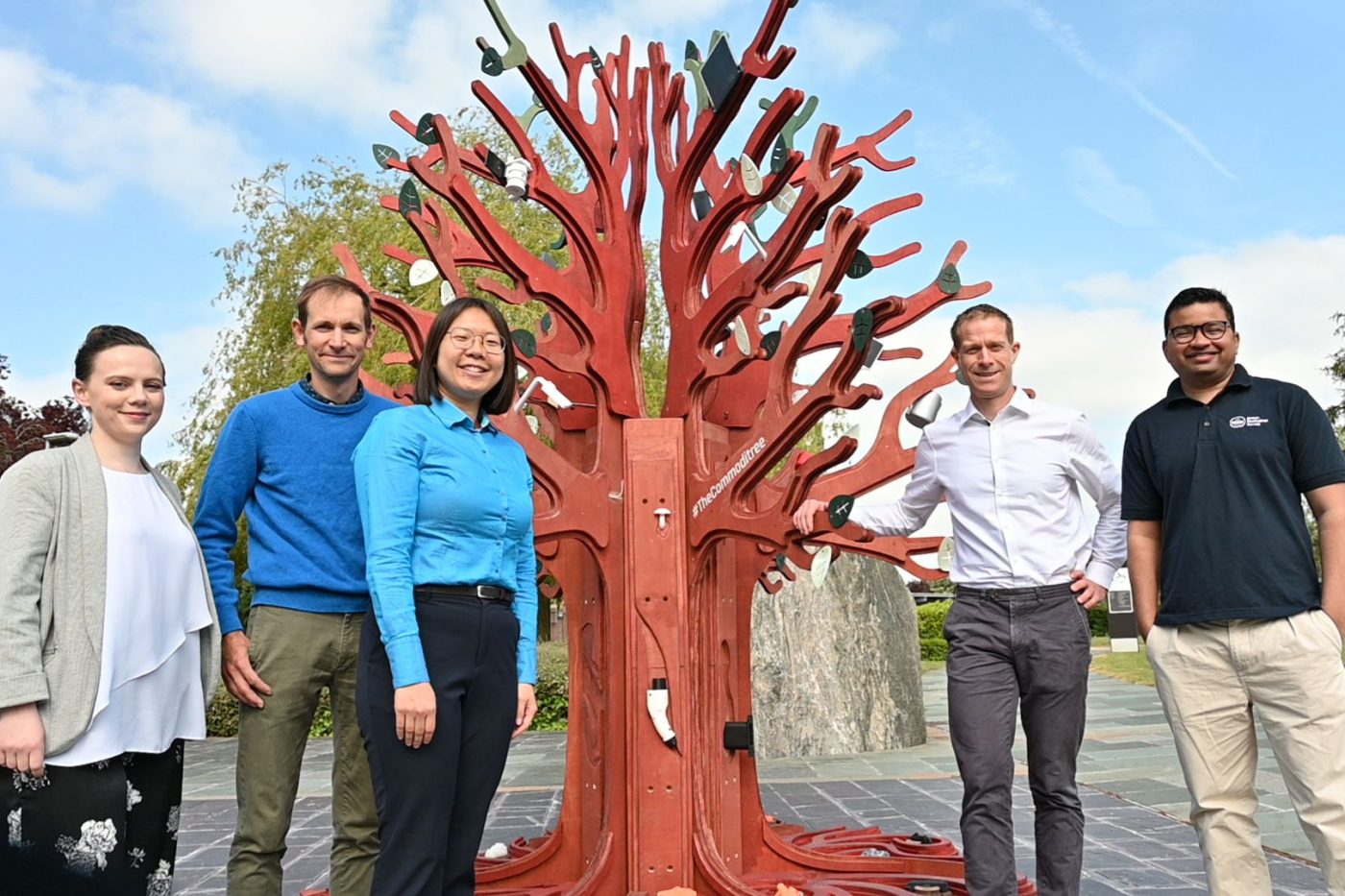
Situated in the Green Futures field at Glastonbury, festival goers will be invited in to explore how our modern lifestyles wouldn’t be possible without rocks and minerals as part of a new touring festival stand called ‘Modern life doesn’t grow on trees’.
The centrepiece of the stand is #TheCommoditree, a brand-new public engagement installation from BGS, funded by the Critical Minerals Intelligence Centre as part of the Department of Business and Trade.
At first glance, the tree is a sculpture reflecting the natural surroundings of its festival environment. At three metres tall, it is an eye-catching sight, intriguing visitors and helping them trace the ways in which minerals and rocks are extracted from below our feet and intrinsically wound into our modern lives.
Raising awareness and the necessity for a sustainable supply of critical metals has never been more important. #TheCommoditree will not only enable people to visualise just how important rocks and minerals are in their everyday lives, but also initiate discussions around dependence on other countries, the associated security of supply and the circular economy.
Paul Lusty, director of the Critical Minerals Intellegence Centre
Alongside ‘Modern life doesn’t grow on trees’, we are launching a host of resources for schools aimed at Key Stage 2 and Key Stage 3 pupils, including videos and downloads. These classroom activities will explore:
A green future
Our modern lives are enabled by a huge range of appliances and technologies that are powering our sustainable future, from mobile phones and household items to wind turbines and solar panels. These everyday items appear in our lives without much thought as to where they come from and how they are made, yet they all have something surprising in common: they rely on a host of metals and minerals that are extracted from the ground.
#TheCommoditree has all the electrical trappings of modern life emerging from its branches. 3D-printed mineral crystals in the roots of the tree can be pressed like buttons to light up paths to the gadgets that require them for use. Solar panels and miniature wind turbines are nestled in the branches of the tree, bringing home to visitors the reality that clean energy technologies also rely to some extent on the extractive industries. Some objects will be familiar and others surprising … visitors should leave asking themselves if a disposable vape is really the best use of a lithium battery!
The road to a green future is a rocky one. This stand invites visitors to consider the difficult decisions we will all have to make and explore how mining and nature recovery must coexist in order to deliver clean energy for the future.
For media enquiries please contact BGS press office: bgspress@bgs.ac.uk; 07989115657
You can find ‘Modern life doesn’t grow on trees’ and #TheCommoditree in the Green Futures field at Glastonbury from Wednesday 21 June to Sunday 25 June 2023.
For associated imagery, please contact bgspress@bgs.ac.uk.
Resources for schools can be found on our Discovering Geology site
Available for interview
Paul Lusty, director of the Critical Minerals Intelligence Centre at the British Geological Survey.
The BGS public engagement team at Glastonbury — all requests must come through Sarah Nice, 07989 115657.
About the British Geological Survey
The British Geological Survey (BGS) is a world-leading applied geoscience research centre that is part of UK Research and Innovation (UKRI) and affiliated to the Natural Environment Research Council (NERC). BGS works with more than 150 private sector organisations, has close links to 40 universities and sponsors about 100 PhD students each year.
About the UK Critical Minerals Intelligence Centre
The UK Critical Minerals Intelligence Centre (CMIC) supports the UK in securing adequate, timely and sustainable supplies of the minerals and metals it requires to transition its economy in the coming decades to net zero emissions.
Led by BGS with support from the Department for Business & Trade (DBT), we work together with universities and private and public sector partners to gather and analyse intelligence on the supply and demand of critical minerals, their global value chains and use by UK industry. Our aim is to guide decision making by Government and industry to mitigate risks to supply security, helping to deliver economic prosperity and create opportunities for UK businesses in critical mineral supply chains, domestically and internationally.
About the Department for Business and Trade
The Department for Business and Trade (DBT) unifies what was the Department for International Trade and the business-facing parts of what was the Department for Business, Energy & Industrial Strategy.
It brings sector, market and regulation experts together with world-class trade negotiators and business-support teams across the UK and overseas. This is to make the UK the best place to start and grow a company — helping create the business growth that contributes to better jobs and higher wages and living standards.
Relative topics
Related news
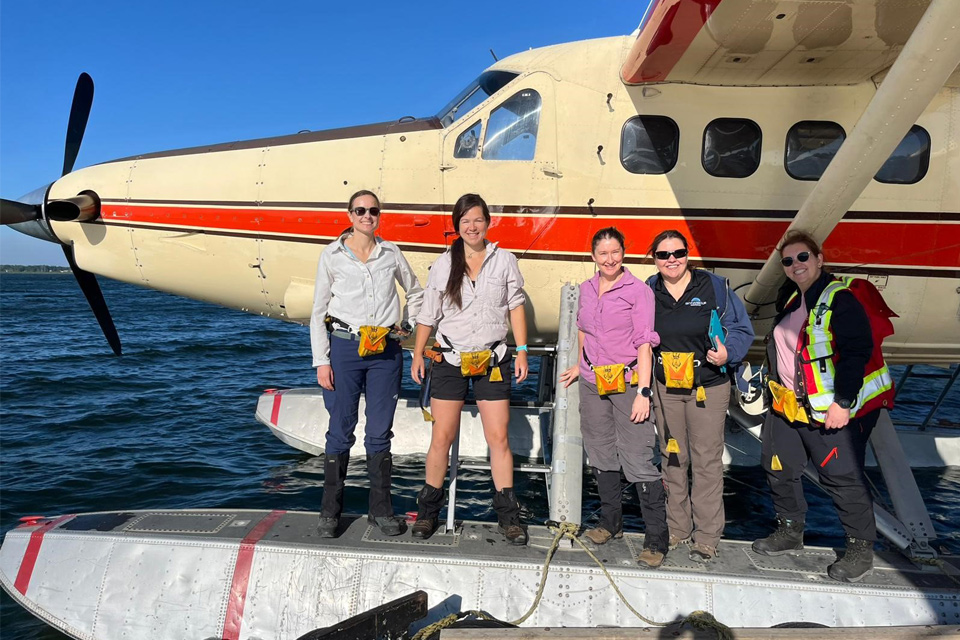
Funding awarded to UK/Canadian critical mineral research projects
08/07/2025
BGS is part of a groundbreaking science partnership aiming to improve critical minerals mining and supply chains.

New interactive map viewer reveals growing capacity and rare earth element content of UK wind farms
16/05/2025
BGS’s new tool highlights the development of wind energy installations over time, along with their magnet and rare earth content.
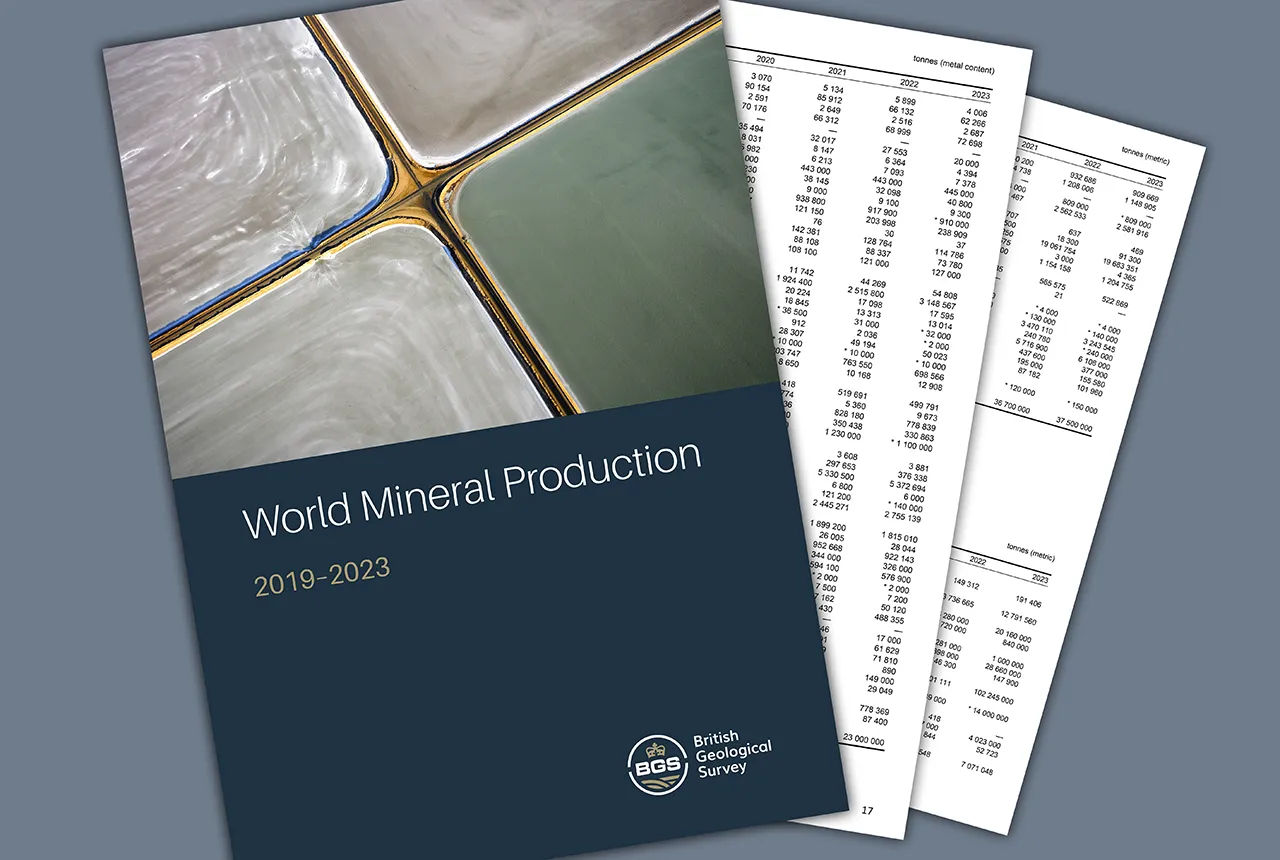
Latest mineral production statistics for 2019 to 2023 released
28/04/2025
More than 70 mineral commodities have been captured in the newly published volume of World Mineral Production.
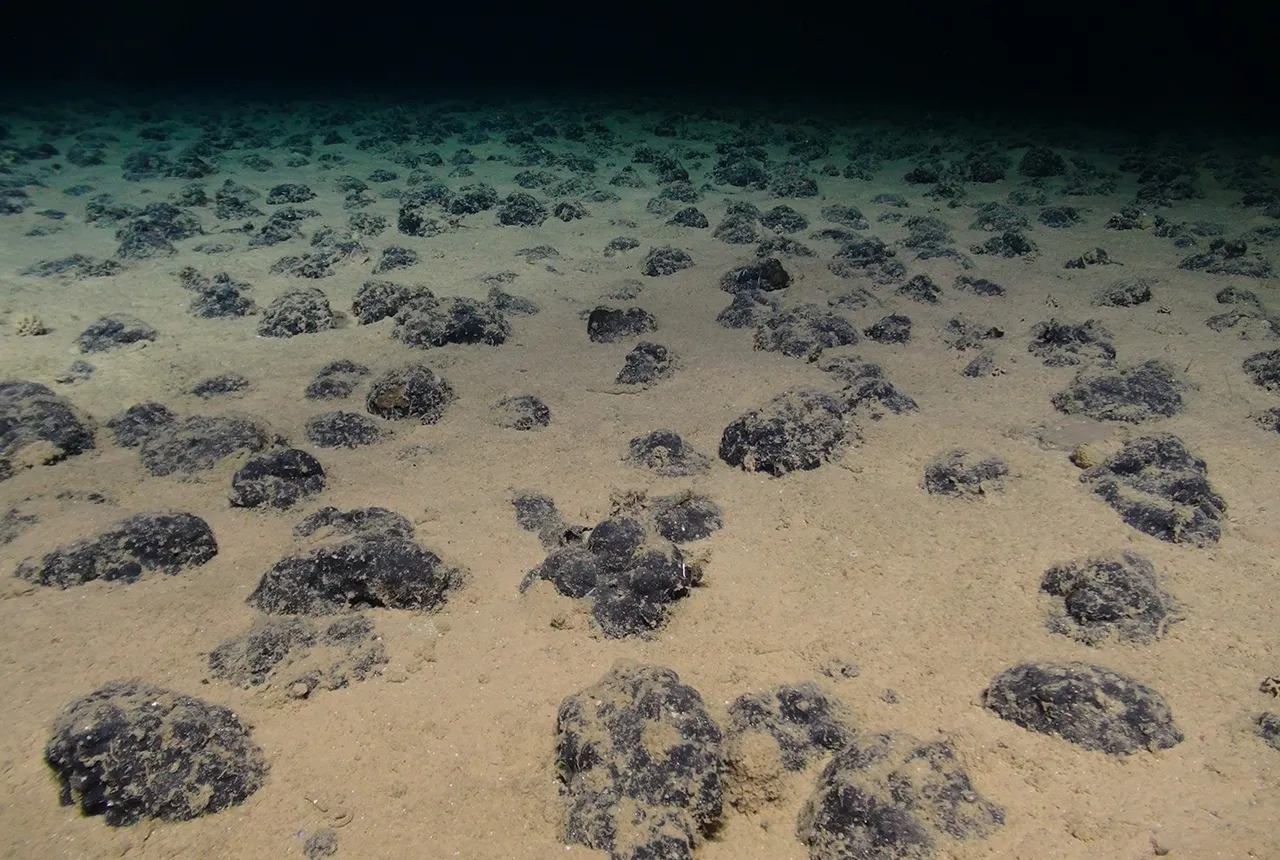
New study reveals long-term effects of deep-sea mining and first signs of biological recovery
27/03/2025
BGS geologists were involved in new study revealing the long-term effects of seabed mining tracks, 44 years after deep-sea trials in the Pacific Ocean.
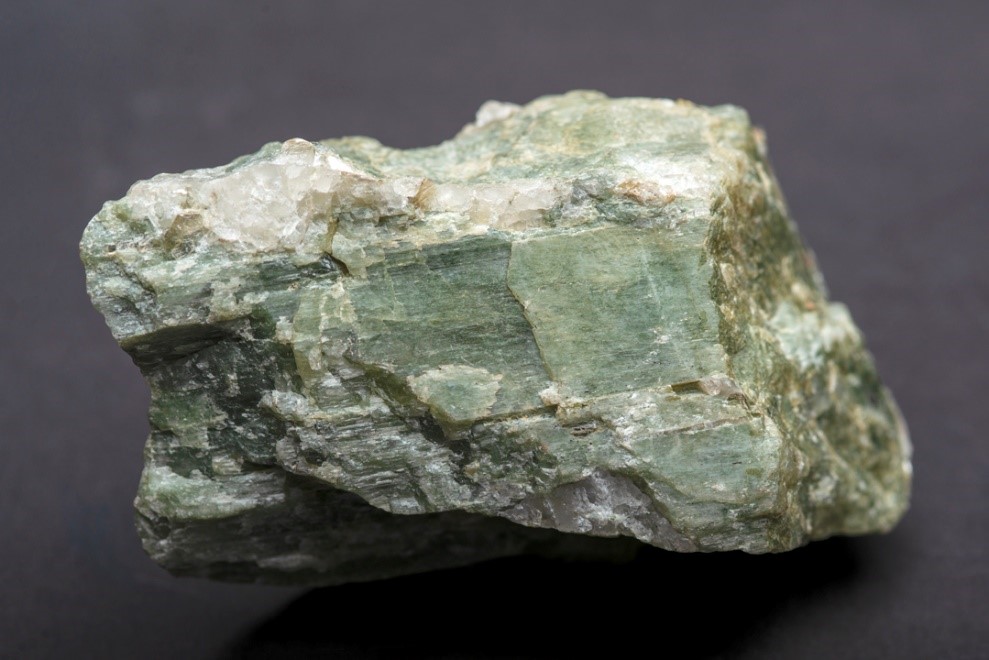
Future projections for mineral demand highlight vulnerabilities in UK supply chain
13/03/2025
New Government-commissioned studies reveal that the UK may require as much as 40 per cent of the global lithium supply to meet anticipated demand by 2030.
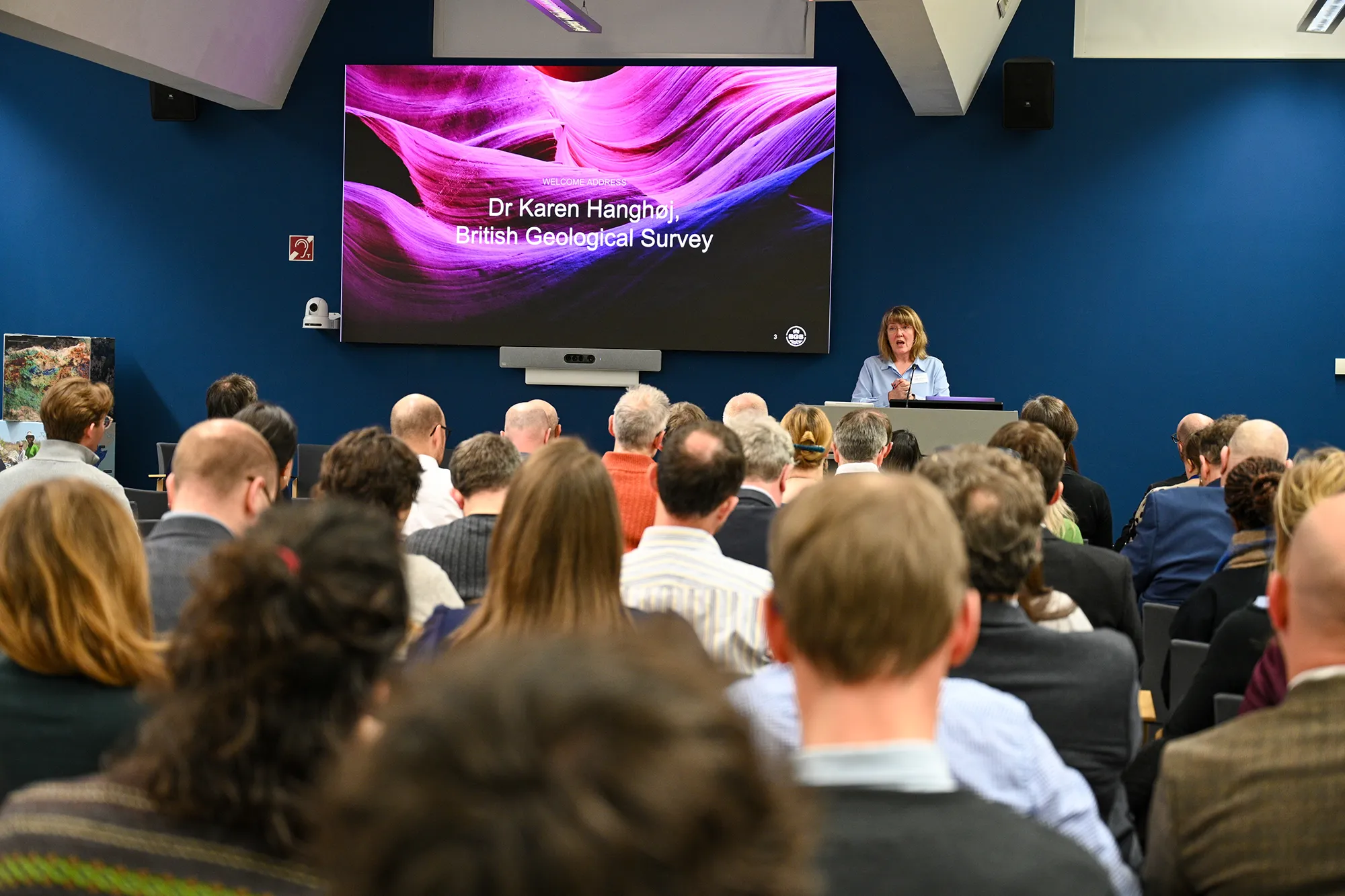
Critical Mineral Intelligence Centre hosts second conference
28/02/2025
The Critical Minerals Intelligence Centre conference took place at BGS’s headquarters in Keyworth, Nottinghamshire.

Dr Kathryn Goodenough honoured with prestigious award from The Geological Society
27/02/2025
Dr Kathryn Goodenough has been awarded the Coke Medal, which recognises those who have made a significant contribution to science.

The challenge of assessing the UK economy’s dependence on mineral supply
28/11/2024
Critical, essential, or just plain important? Dr Gavin Mudd, director of the Critical Minerals Intelligence Centre, discusses the findings and new methodology featured in the 2024 UK Criticality Assessment.

UK 2024 Criticality Assessment published
28/11/2024
The latest UK Criticality Assessment, produced by the UK Critical Minerals Intelligence Centre, shows that growing diversification brings an increasing vulnerability in terms of disruption to supply.
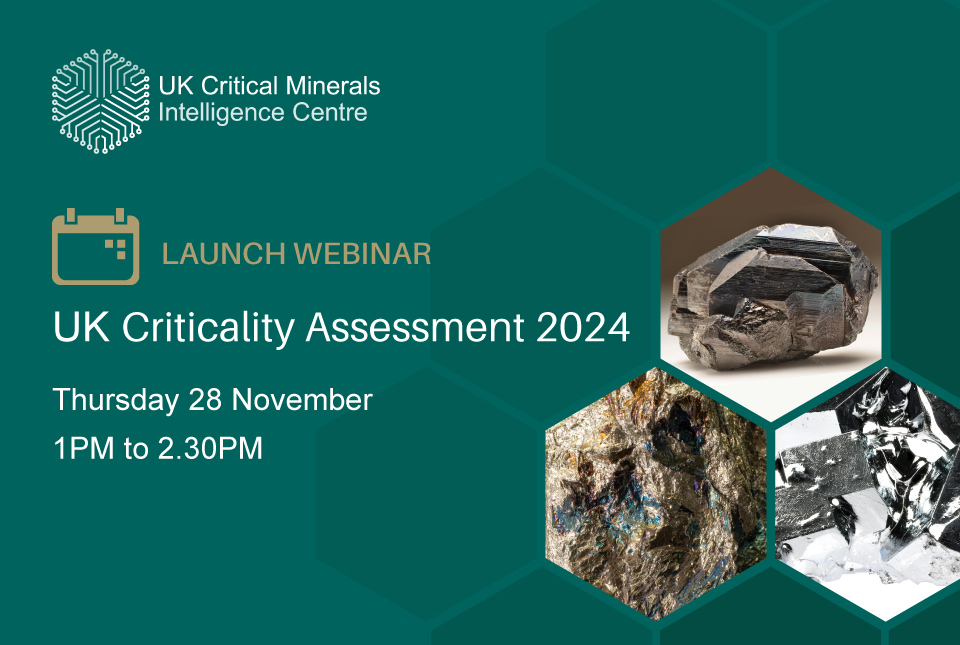
Criticality Assessment 2024 launch webinar
Event on 28/11/2024
A special live webinar with the team from the Critical Minerals Intelligence Centre to accompany the launch the latest UK Criticality Assessment. A recording is now available to watch online

Mining sand sustainably in The Gambia
17/09/2024
BGS geologists Tom Bide and Clive Mitchell travelled to The Gambia as part of our ongoing work aiming to reduce the impact of sand mining.
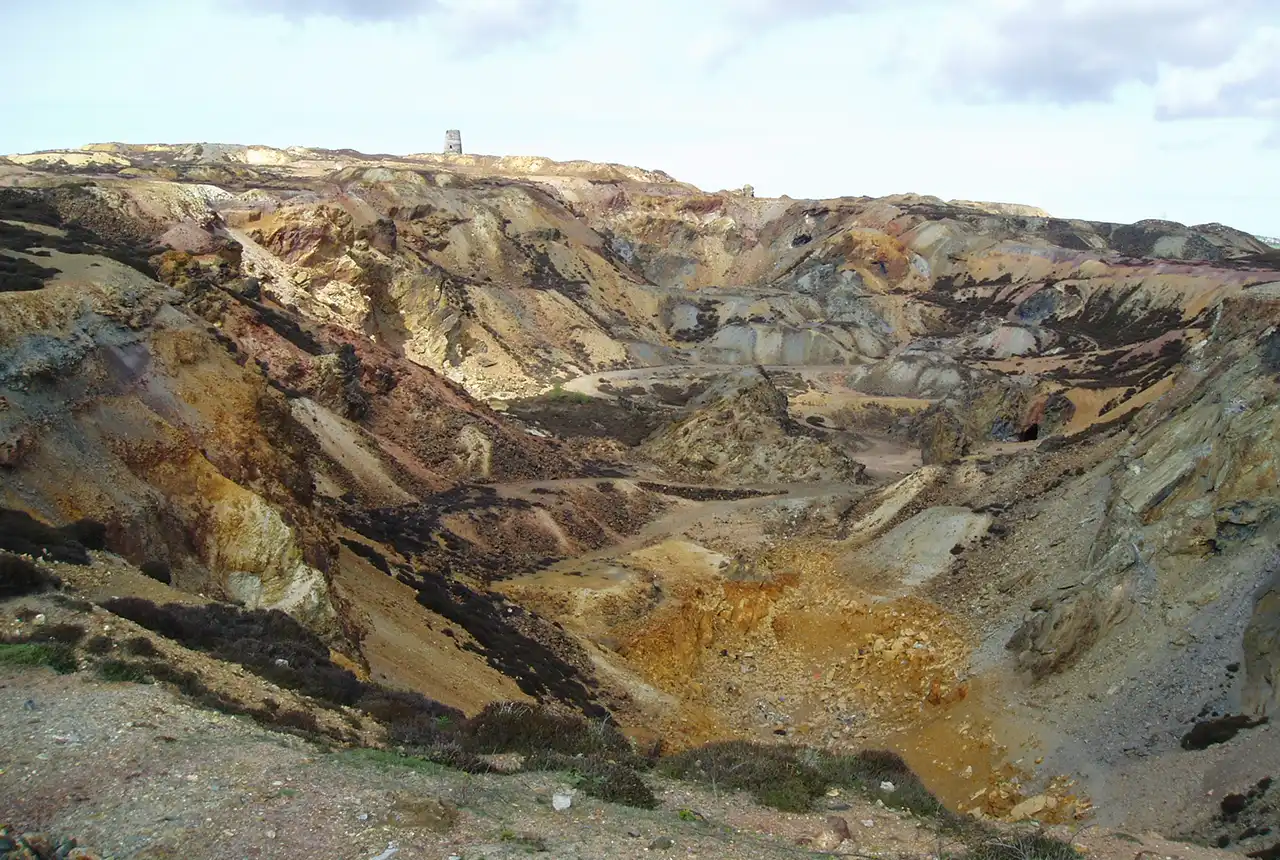
Over 600 mineral exploration project reports now available through the UK Critical Minerals Intelligence Centre
17/05/2024
All 662 reports from the Mineral Exploration and Investigation Grants Act programme are now available on the Critical Minerals Intelligence Centre website.



